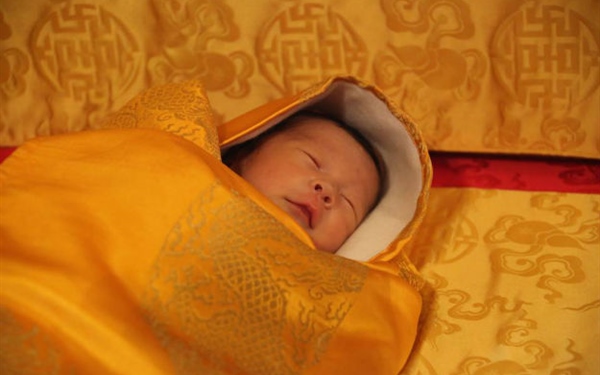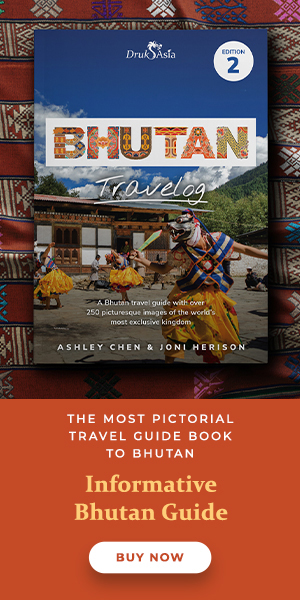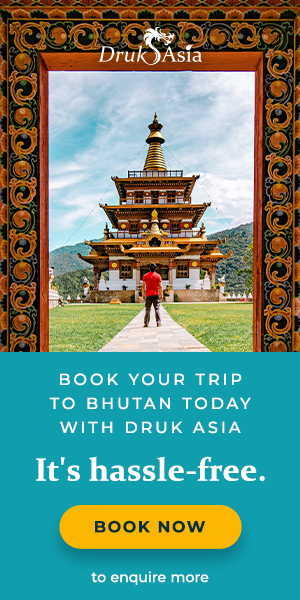Why you'll meet many Bhutanese with the same name
The most common name in Bhutan is ‘Tshering’ followed by Sonam, Dorji, Kinley, Sangay, and Karma.
 Prince of Bhutan, Jigme Namgyel Wangchuck when His Royal Highness was a newborn
Prince of Bhutan, Jigme Namgyel Wangchuck when His Royal Highness was a newborn
There are many processes or taboos involved in the naming of a child in different cultures, traditions and religions. In China, it is considered unlucky for a baby to be properly named before birth. In Hindu tradition, the newborn is taken to a Hindu temple for the naming ceremony only after 40 days. The naming ceremony for Jewish boys is held on the eighth day after birth in presence of male relatives.
According to BBC News, since 2013, Oliver is the most popular baby name in the world followed by Liam and Noah in the United States. In this contemporary world, international names and names drawn from pop culture are the biggest baby-naming trend for boys and girls. Many parents around the world are naming their children according to their choice and preference.
However, in Bhutan, it is a different affair.
Naming Ritual in Bhutan
Just like the name 'Li’ is commonly found in China and 'Muhammad' in Islam, there are several names that are commonly found in Bhutan among the 700,000 population. According to the data of Forebears, it's known that there are bout 19,217 unique first names in Bhutan. Out of which, 40 people or more share a similar name. The most common names in Bhutan are ‘Tshering’ followed by Sonam, Dorji, Kinley, Sangay, and Karma.
In Bhutanese custom and tradition, the baby will not be named immediately after birth by the parents. Instead, parents will seek spiritual guidance to name the child. According to the traditional belief, a newborn is named within a few weeks after birth. The name of the baby will be given by a religious person, lama, monk, trulku or Rinpoche. Interestingly, the name of the child will be received from the temples dedicating to the founder or deity of that particular temple. For example, the person with the first name Kinley can be traced back to Chimi Lhakhang.
After birth, even before the naming of a child, parents will seek to understand the horoscope of the baby established by the local astrologer. Locally, it is known as ‘keytse’. The astrology reading contains the detail of the child‘s previous life, the general characteristics of the child in the present life, difficult periods, details of the child's marriage and children.
Fun Facts about Bhutanese Name
• Bhutanese names do not have a family name, except for the royal lineages. The royal family name is 'Wangchuck'.
• Due to the absence of a family name, you can easily meet someone with the same name throughout the country. So you should not be surprised to find people who share the same name in Bhutan.
• Unlike in many countries, in Bhutan, a woman does not take after her husband’s name following their marriage. The children’s name is also different from their parent or grandparents. You'll never be able to tell if someone is related just by their name.
• Most people have two names like Tshering Denkar, Dorji Wangdi, etc. The first name is given without any distinction to boys or girls. For example, Tshering can be either a boy or a girl but Denkar will give an indication that it is a female.
• Most names have some meanings or a religious connotation to them. For example, Tashi means good luck, Tshering is long life, Sonam means lucky.
Brands and Organisations' Names
Not only do Bhutanese seek personal names from religious figures but also the name for their business ventures. When somebody wants to manage a company, open a restaurant or run a hotel, they will seek divine guidance for the name. It is believed that the name given by religious figures would bring good omen and fortune to the business.
The Changing Trend
Despite the traditional religious beliefs, things are now changing in Bhutan. New parents are resorting to naming their own children. The newborns are now inheriting their father's last name as a surname. Many newborn girls are also named Jetsun Pema after Queen of Bhutan, Her Majesty the Gyaltsuen Jetsun Pema Wangchuck.
Business and enterprises are also naming their corporations based on copyright and Intellectual Property law. The trend showcases the evolution of our Bhutanese culture and beliefs.




